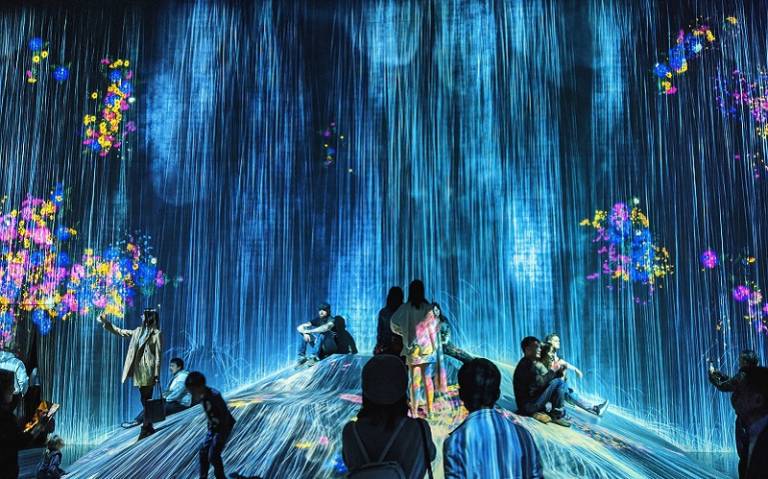VIRTUAL UCLDH: 'Art and Digital Technology' show and tell
16 February 2022, 5:00 pm–7:00 pm

We have five short presentations from UCL staff and research students whose work involves art and digital technology/media, followed by further discussion around the theme.
This event is free.
Event Information
Open to
- All
Availability
- Yes
Cost
- Free
Organiser
-
UCLDH
UCL Centre for Digital Humanities and the UCL Slade School of Fine Art are pleased to present this virtual show&tell.
The event will run on Zoom; please register to receive the joining link: https://ucldh-art-tech.eventbrite.co.uk
We will have five short presentations, followed by further discussion. The event will be co-chaired by Prof Susan Collins (Slade) and Dr Foteini Valeonti (UCLDH and Dept of Information Studies).
- Simulated Affection, Lea Collet (Slade)
This performative presentation draws on Collet's current research in art and digital practices. Taking affection as a point of departure for analysing our contemporary “post-digital” condition makes it possible to highlight the tensions inherent in the digital subject: being a space of both alienation and emancipation. Looking at 'augmented affectivity', this presentation will intertwine current theoretical research as well as Collet's art practice.
- 'Escape the Office Alive', Josh Entsminger (Inst for Innovation and Public Purpose) and Eve Marguerite
The talk is on a current joint project regarding how emerging technology (such as biometric scanning, facial recognition, emotional analysis, text sentiment analysis, remote heartbeat identification) are reshaping the future of Whistleblowing, understood in the context of an online text based game currently titled “escape the office alive.” This game would look at both the current tech and its potential impact on whistleblowing in a speculative future, and the potential for art to address this intersection in multiple avenues.
- A virtual memory palace for the 1001 Nights, Vaishali Prazmari (Slade)
My practice-led PhD research at the Slade involves making 1001 paintings and artworks generated by the nested frame story and motifs of the 1001 Nights, or the Arabian Nights as it is sometimes known. To memorise the stories of the 1001 nights, the narrator Shahrazad had either a phenomenal memory or a honed and practiced mnemonic technique to remember all of her tales. I aim to try the same and I propose to make a digital memory palace to house my 1001 paintings. The twists and turns of the palace mirror the winding structure of her stories within stories and navigating through the rooms, corridors and halls of my memory palace may aid memorisation. One of the wings of the memory palace will be used to memorise 1000 Chinese characters of the Qian Zi Wen 千字文 (the Thousand Character Classic), thus combining an ancient Chinese memory primer with the latest tech.
- “Framed, Therefore Real”, Ecem Ergin (Bartlett)
Do you think architectural space makes people believe in something they would not believe in otherwise? This research explores the role of architectural space in conveying a message in both forms: physically situated and virtually distributed. Times Square of New York is used as the case for the investigation. The research aims to contribute to the debate around the trustworthiness of digital media and the importance of the urban environment as an informer of the publics.
- Interactive, Crowdsourcing &Participation Art, Funa Ye (Slade)
I will talk about two of my art projects as examples of interactive, crowdsourcing & participation art: Curated Nails and Dr. Corona online. 'Curated Nails’ is a project for curatorial experimentation on nails and its surrounding area, breaking the barriers of “daily display” and “art exhibition”. Dr Corona Online is an interactive, online work. Dr Corona is not a virus, nor a real human being; it is an artificial-intelligence-doctor, 'answering and solving' medical problems. Its corpus comes from Covid-19 headlines on the internet, the discussions and tweets on social media, as well as the widely spread motivational quotes, a.k.a. the ‘chicken soup quotes’.
 Close
Close

